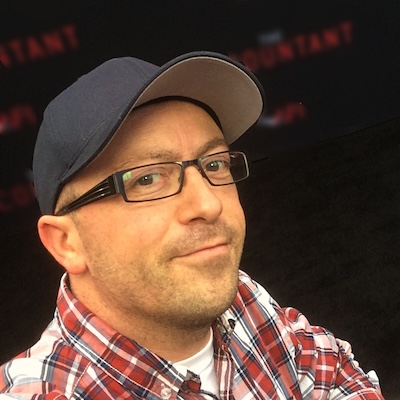From Maya Files to Magic: How Hollywood Creatives Help Build Epic Universe’s Immersive Worlds
Almost a decade in the making, Epic Universe at Universal Orlando Resort in Florida is a groundbreaking theme park that highlights the shared DNA between filmmaking, attractions, and immersive real-world experiences, taking audiences and guests on a cinematic journey.
Three of the five worlds that make up Epic Universe are born out of IPs that have graced both the big and small screens, namely The Wizarding World of Harry Potter – Ministry of Magic, Dark Universe, which is the home of the iconic Universal Monsters, and How to Train Your Dragon – Isle of Berk. The Harry Potter and How to Train Your Dragon franchises alone have grossed over $11.2 billion combined, but they continue to create jobs in the industry both domestically and internationally. According to an economic study, the investment in Epic Universe, which reportedly cost around $7 billion to build, has resulted in $11 billion of economic impact nationwide. In its first year of operation, the park is anticipated to generate $2 billion for the state of Florida alone.
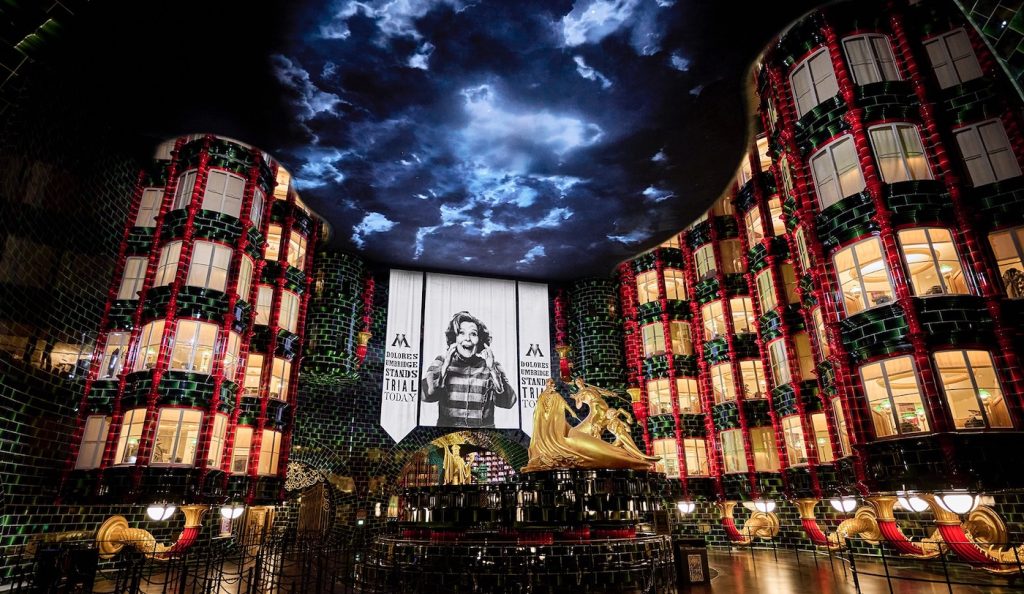
According to figures from Universal Destinations and Experiences, in 2023, Universal Orlando generated 94,000 jobs across the US, from highly skilled engineers to construction crew and software specialists to artists, architects, and more, and Epic Universe is projected to create more than 17,500 new jobs across the country in its first year of operation.
With the increasing overlap between Hollywood and theme park experiences, should the state and federal tax breaks available to TV and film be extended to the theme park industry where cinematic IPs are involved? It’s worth noting that Florida does not currently have a statewide film tax credit program for film and TV. Right now, only six of its 67 counties do.
“Just from a selfish point of view, I think it would be amazing,” explains Dean DeBlois, writer-director of all three animated How to Train Your Dragon films, as well as the live-action adaptation. “There was great expense in investing in the construction of Epic Universe, so it’s no small feat to commit and engage on a theme.”
The filmmaker believes the emotional impact of the elevated experience builds an even stronger bond with the IP. He continues, “People walking in there who were familiar with How to Train Your Dragon were so immersed that they were being affected emotionally and visibly, and I was one of them. It blew me away, so I would love to see more of it. “
As with the other two Universal theme parks in Orlando and the company’s properties in Hollywood, Beijing, Japan, Singapore, and soon the UK, the connection to cinema is deep in their DNA. Steven Spielberg himself serves as the Creative Consultant for Universal Destinations and Experiences and is very hands-on.
“One of my greatest joys was being able to take Steven Spielberg on a tour through Dark Universe,” recalls Chris Frisella, Assistant Director and Executive Producer at Universal Creative. “We were still walking on sand at that point, but facades were going up, and he was asking questions.”
Frisella agrees that audiences are hungry to extend their journey with the IPs they love and take them to the next level, bringing the screen and parks closer together than ever before.
“Just like film and television, we are visual storytellers,’ he explains. “We don’t have a fourth wall, and we live 360 degrees, so we have to be thinking about what’s around the guests at all times. It’s about all the visuals, the music, everything tactile, so it’s about giving our guests a chance to step into those worlds they’ve been looking at flat for so many years and come in and live in them. We want to make sure that we tell the story, but not the entire story, because there needs to be room for you to see yourself in it.”
Epic Universe’s How to Train Your Dragon – Isle of Berk is a great example of the interconnection between the creatives working on the films and the ones manifesting the immersive IP in the theme park.
“When we were first doing blue-sky and going into concept, DreamWorks was making the third film, so we had a lot of access to the team,” explains Katy Pacitti, Senior Director and Executive Producer at Universal Creative. “It was beneficial to be able to ask questions like whether the mountain has a name, because I was getting that question. In terms of getting hold of all of their assets, we got the Isle of Berk [from How to Train Your Dragon] as a Maya file, and we had to break it apart so we could look at all the buildings and see which ones we wanted to build.”
“We also got great notes back from one of their art directors. My favorite was that there’s no pink in Berk. Also, when they saw what we were doing for Mead Hall with the tapestries, which they had in the first film but were a bit serious, they created something for us and made them funny.”
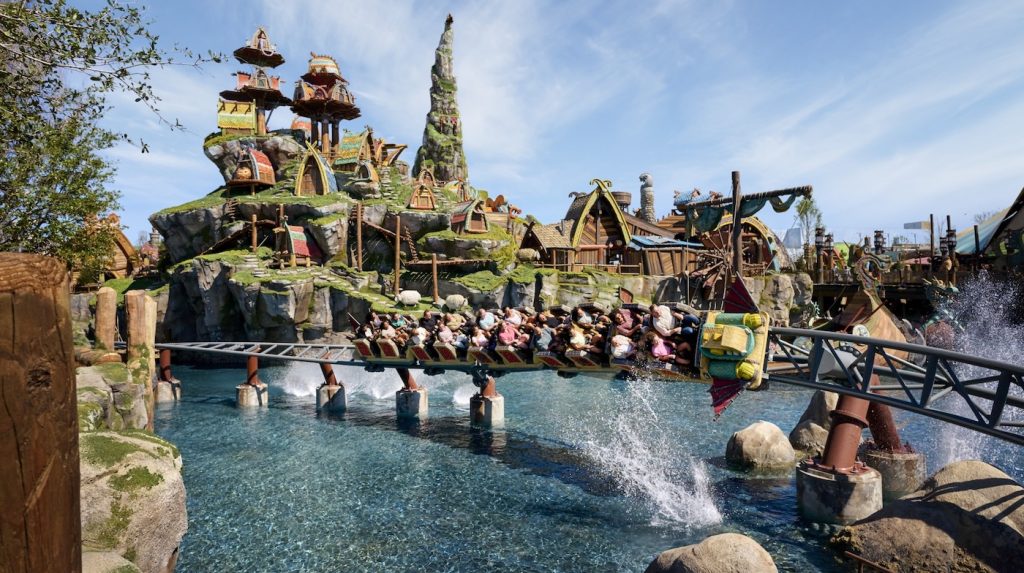
Universal Creative is based in Orlando, Florida, where the core of the work takes place. However, creatives in states across the US, many of which currently take advantage of tax breaks and incentives for TV and film, play vital roles in bringing attractions such as those at Epic Universe to life.
“There’s talent everywhere, so it depends on the type of experience we’re developing and delivering, and where the best people are to execute that type of vision,” muses Scott Verble, Assistant Director and Executive Producer at Universal Creative. “The experience that we’re trying to develop is really what drives where the people come from.”
During the 1990s, there was a push to bring more TV and film production to Orlando from Los Angeles. Many of the people who made the move still live in or around Orlando.
“That helps especially with some of the more traditional physical trades, like prop making and model making,” Verble continues. “All those things are essential to the design process, so we have that homegrown talent here, but also with the international reach of these theme parks. The Universal Destinations and Experiences brand is recognized globally, significantly expanding our talent pool to include not only local talent in Florida but also a diverse international pool. People who were inspired by what we’ve delivered so far want to help make the next park.”
Understandably, one of the states with which the Florida team frequently collaborates is California, which offers various film tax incentives to encourage film and television production but is under pressure to do more. Currently, if a scene is filmed inside a theme park attraction, the costs of using that attraction could be eligible for a tax credit. However, the production of a theme park attraction or experience based on a TV or film IP is currently not covered by the California Film Commission’s program – tax credits only apply to “scripted content.”
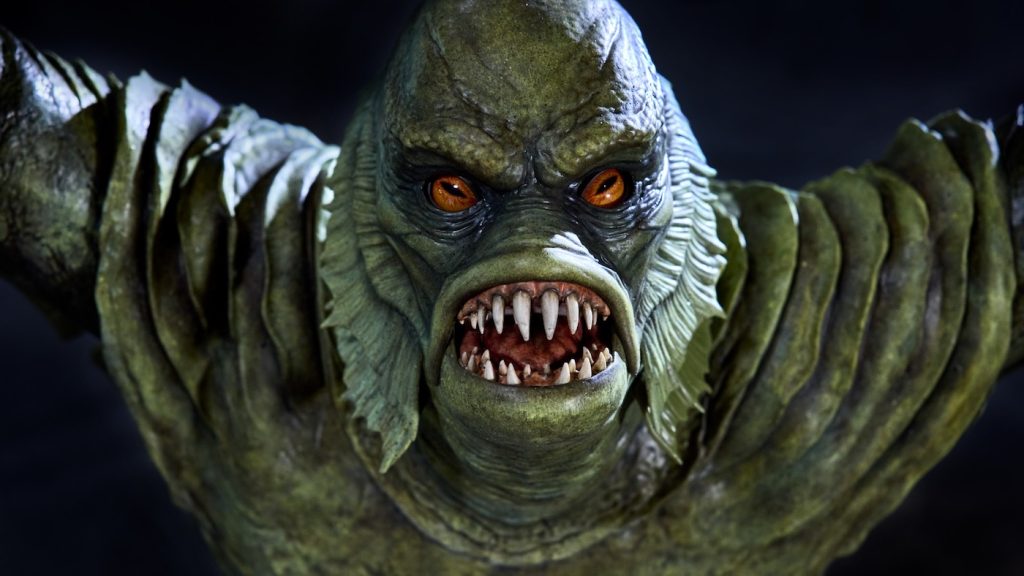
“For Dark Universe, we worked with a lot of monster creators who are all based on the West Coast,” Frisella confirms. “For example, we worked with Eryn Krueger Mekash, who is an Emmy-winning producer on things like American Horror Story. She’s also a creator, so she designed a character for us, and then we had that built and installed here in the land.”
“We also used Norman Cabrera, who is known as the king of werewolves, to create a lot of the werewolves here in the land,” Frisella says. “We also worked with Steve Wang, a monster creator, who created the two hero vampires featured in Das Stakehaus. We wanted to make sure that we were tapping into the legitimacy of the true horror and monster fans to give us some street cred with that crowd.”
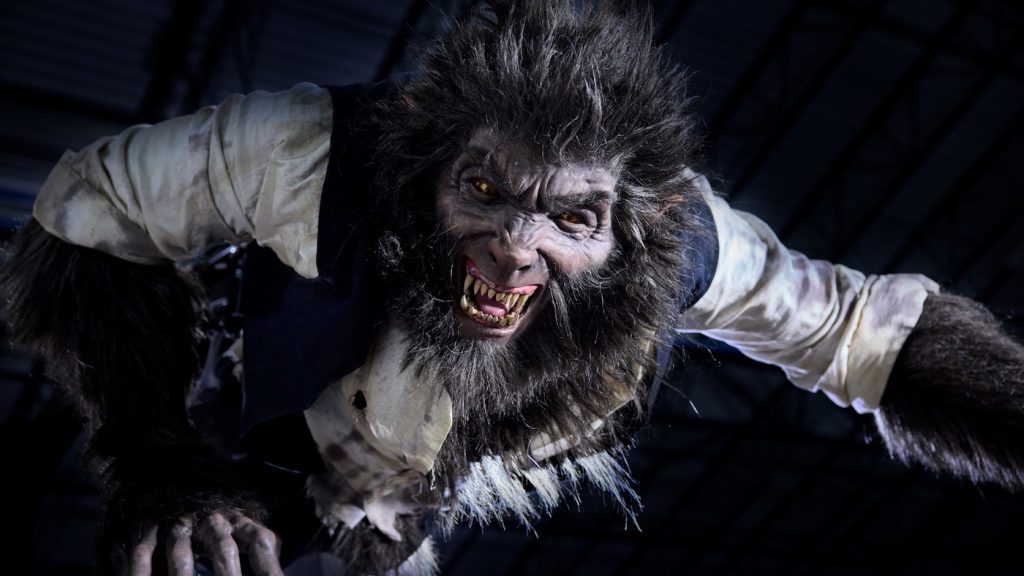
Who makes up the team of creatives at Universal Orlando Resort that tells the stories also matters, and the diversity of the worlds they create is drawn from the diversity of the world they live in and work in. Almost every keynote speech at Epic Universe’s opening event highlighted the work of the women and men who achieved a common goal under the leadership of Karen Irwin, President and COO of Universal Orlando Resort.
“I’m older, so I’ve been around for a while, and there for many years, I was the only woman at the table,” Pacitti concludes. “Universal has done an excellent job. Our engineering teams are probably 50/50. We’ve got a strong group of women engineers. As we age up to those upper levels, it tends to be mostly men, but they’ve earned their stripes, and that’s only because 20 years ago, it was mostly men. Now, women are advancing to higher levels. For example, we have Molly Murphy, our President at Universal Creative, and Karen, who has now stepped into the leadership role overseeing all the parks here. She has made an incredible difference in the attitude and the level of engagement with the team members.”
Featured image: Dark Universe at Night (Courtesy of Universal Destinations & Experiences)


